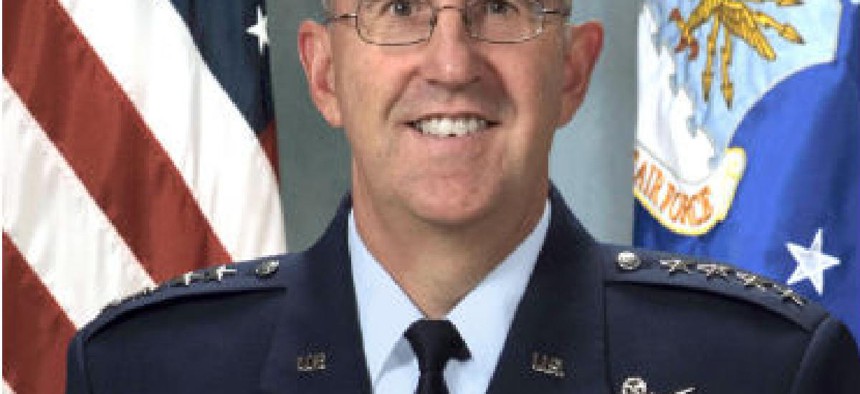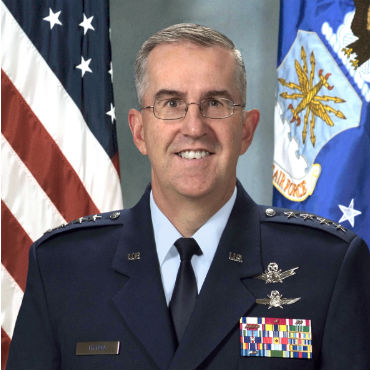Senate confirms new head of Strategic Command

The Senate has confirmed Air Force Gen. John Hyten as the new commander of U.S. Strategic Command, which oversees Cyber Command.

Gen. John Hyten, the new leader of U.S. Strategic Command, has stressed the need for more robust deterrence and offensive cyber capabilities.
The Senate has confirmed the Obama administration's nominee to take over Strategic Command, which oversees the Defense Department's nuclear, space and cyber elements.
Air Force Gen. John Hyten will leave his post as commander of Air Force Space Command at Peterson Air Force Base in Colorado and assume his new post at Offutt Air Force Base in Nebraska.
Hyten, who succeeds Adm. Cecil Haney, will oversee U.S. Cyber Command and Adm. Michael Rogers, who is also director of the National Security Agency.
During his confirmation hearing before the Senate Armed Services Committee on Sept. 20, Hyten said he views cyber as a domain of warfare.
"Cyber is a place where we conduct missions," he said. "One of those missions we conduct is electronic warfare.... Those capabilities have also had less focus than they should have over the last number of years."
If confirmed, he said he would "look across the entire Department of Defense, all our capabilities, to understand electromagnetic warfare [and] the role in cyberspace."
Hyten also said he would evaluate the cyber capabilities and resources of the National Guard and Reserves. "If you think about many of the missions we do in space and cyberspace, they are stateside missions," he added. "It's perfect for the Reserve. Some of our most impressive cyber units are guard units."
In addition, he argued for more robust deterrence and offensive cyber capabilities. "From a military perspective, it's essential that we look at cyberspace as a place where bad actors are," he told lawmakers. "We need to be able to identify them, and if they are threatening the United States, we need to be able to eliminate that actor from cyberspace."
During the hearing, Sen. John McCain (R-Ariz.) asked Hyten if he believed in maintaining the "dual hat" role that Rogers fills in directing both NSA and Cyber Command.
"I strongly believe that," Hyten said. "There may be a day in the future where that's not the case, but today is not that case."
However, he has expressed support for elevating Cyber Command to a unified command, which raises the question of whether that can be done without separating the leadership.
Hyten's views align with those of McCain and a number of other powerful senators who oppose dividing the leadership of NSA and Cyber Command. But those views appear to be at odds with Obama administration officials, who have been advocating for a split in leadership.
According to press reports, Defense Secretary Ash Carter and Director of National Intelligence James Clapper want to separate NSA and Cyber Command and have a civilian take the reins at NSA. Furthermore, Rogers has expressed the belief that in the long run, the entities should be separated.
The White House and DOD did not respond to a request for comment on the potential differences between Hyten and the administration on the two organizations' leadership.


